- Home
- Patrick Robinson
The Delta Solution Page 35
The Delta Solution Read online
Page 35
He headed north, seeking shelter on the far side, and to make matters worse, it began to rain, and the wind blew hard out of the southwest. Hassan put the boat right before the breeze and surfed his way across the channel. It wasn’t perfect, but it was much smoother. As it grew dark, both the weather and the seasickness subsided.
All they had to do was calm down, have a light supper, and wait for the Ocean Princess to come rolling through the channel.
At midnight, everyone came on watch. Every sharp eye on the ship was trained on the black, southwestern horizon. The moon was high and the sky bright, but there was not a paint on the radar, not even out on the twenty-five-mile circle.
At 0100 they spotted something, a sizeable paint from an incoming ship, too big to be weather, much too big to be a shoal of fish or even a sperm whale, which had lived and bred in the area for centuries.
No, this was a real boat, moving quite fast. And if it were the Princess, she was right on time. It would take her a little over ninety minutes to reach the precise spot where Mohammed Salat’s contact said she would be: south of Haddumati Atoll at 0230 on the GPS 1.5N 73.20E. Exactly where the Desert Shark was making a racetrack pattern in the water.
Wolde never took his eye off the screen and at 0200, with the ship only eight miles away, Hassan, peering through night-glasses, declared it was without question the Princess, running easily through the swells. She was lit up like a Christmas tree.
“Soon she’ll pass due south of us,” said Hassan. “Extinguish all lights, transmit nothing, and we’ll close in on her stern. Right now we’ll lower the skiffs and make them fast, and we’ll tow in.”
“I’ll give the order to board the skiffs two miles from the ship,” said Wolde. “Everything’s loaded. Carry only your personal weapons.”
By now they could see the lights of the Princess without night-glasses. She was a good-sized ship but nothing close to the Queen Beatrix or the Global Mustang.
Hassan waited until the bow of the Desert Shark was pointing directly at the beam of the Ocean Princess, and only then did he move forward, still with no lights, still transmitting nothing. He wanted to chug in slowly but the liner was going at a real clip through the water and, whether he liked it or not, the master of the Shark had to get moving.
It was 0230, the middle of the night, and unless someone had been staring at the radar screen on the bridge of the cruise ship, it was unlikely that anyone would notice their approach. Captain Hassan edged his way into the wake of the ship, running hard astern at the same speed, about 16 knots, a mile behind.
In the pitch dark they slowed down for the pirate assault team to board the skiffs. One by one they climbed down into the attack vessels, one on the portside of the Shark, the other to starboard.
“We’re boarding on the starboard quarter,” Wolde told his men. “Sofian drives the lead boat; Kifle and me throw the grapplers and climb on board immediately. I’ll carry one rope ladder. When it drops, two more of you will board, bringing up two more ladders as we discussed. Bu we must get aboard fast. The ship’s asleep. Let’s get in front of the problems.”
And now the skiffs were up and running, leaving the Desert Shark in their wake. Elijah stayed on board with the captain and would join the others only if there was trouble. Hassan dropped further and further behind because the skiffs were under the radar and could not be seen unless someone was out on the deck looking, and no one was.
Sofian maneuvered into position but it was damn tricky at this speed. Finally he had his little boat travelling at exactly the same 16 knots as the liner, almost bumping her but working his way along, fighting an eightfoot rise on the wave.
“Okay, Kifle, LET’S GO!” snapped Wolde. And the two began to rotate the grapplers in underarm clockwise arcs . . . one, two, three, and NOW! Both the steel hooks flew upward, about ten degrees off the vertical. The rail that protected the private decks was about twenty-four feet above the water, and both hooks sailed over, landing with a clump, the noise deadened by the heavy tape around the prongs.
The lines attached to the hooks were knotted and fixed onto the seats in the skiffs, which now lurched around as the big ship towed them along, Sofian revving, trying to stay at zero relative. But the grapplers had grabbed and held, and Ismael and Kifle grabbed their ropes as high as possible and swung out over the side, clinging on powerfully, before making the critical but perilous climb up to the decks of the Ocean Princess.
The speed of the ship was a nightmare. When the lead skiff slipped off a wave, it pulled the line out tight, and the two climbers were forced to the underside, clinging on like monkeys and fighting their way upward from knot to knot. The weight of the rope ladder Ismael was carrying was very tough on him, but he kept going, finally flinging his right leg over the rail and hauling himself aboard.
He was very glad to have the ladder because he did not think everyone could have made that climb. He attached it to the grappler and then dropped it down to the skiff, where grasping hands dragged it inboard. By now Kifle was up and over, standing next to his commander, grateful that he had somehow cheated death on that climbing rope above the surging sea.
The next two men up Wolde’s ladder brought ladders of their own and dropped them down. And now the pirates were in full cry, climbing up with practiced dexterity—Ibrahim Yacin, Elmi Ahmed, Omar Ali, Hamdan Ougoure, and Abdul Mesfin. Two of the juniors were next and then Abadula Sofian. Each of them brought attack equipment and spare grenades. Yacin and Elmi, working side by side on the ladders, hauled up one of the heavy machine guns, and then went back down for a second. The other two junior marines held onto the helms of the skiffs.
The entire operation had taken a total of twelve minutes from the moment Wolde had cleared the rail. And now Admiral Wolde stood on the deck of the Ocean Princess at the head of a band of nine pirates, all with AK-47s slung over their shoulders. Four of them were holding the two heavy machine guns, slung between them on lifting straps.
These four had hefty ammunition belts around their necks, and Wolde ordered them off the small decks below the main stern promenade. Their instructions were ironclad: Get into the main throughways of the ship and seal them off. There’s no need to shoot or round people up. Just get into control. Make it impossible for people to move around. Shout and threaten but do not open fire unless you are personally fired upon.
Meanwhile, Ismael, with Elmi and the ex–army sergeant Yacin, would head to the bridge and take it by force if necessary. The pirates would move up to the main deck, which would become their center of operation, but it was only one floor up to the bridge, although, unlike in the tankers, it was sited much further forward.
Kifle Zenawi assumed a loose command on the main deck and began deploying men to the public rooms, the two juniors detailed to the dining room and main lounge. On the bridge, meanwhile, Wolde and his cohorts had reached the main door. As they did, a security guard down on the main deck hit the interior line to the bridge to report, “Sir, this ship has been boarded by a group of armed men. They are on the main deck right now. I am trying to assemble the guards.”
Captain Lansdale ordered his second in command and the young bosun on duty on the bridge to grab the guns out of the locker and to bring one to him. Just then, Admiral Wolde tried the handle and found it locked. He raised his boot and kicked it, but the big teak door held. Elmi opened fire, blasted the lock asunder, and charged in shooting.
Lansdale fired back and hit Sergeant Yacin full in the chest. Elmi blew the captain away with a short burst from his AK-47, and Wolde shot the bosun dead. The first officer dropped his gun and raised his hands. Wolde raised his right hand, palm extended, and bellowed, “STOP SHOOTING!” But it was already too late. The bridge was a bloodbath, and three men were dead, including the pirates’ beloved veteran Ibrahim Yacin.
Again the voice of the main deck security guard could be heard on the intercom: “I’m having trouble assembling the team, sir. Most of the guys are asleep. And the corridors are u
nder the control of the pirates. No one dare leave a cabin.”
Wolde spoke to the first officer, Johnny Barrow, and instructed him to inform the guard that both the captain and the bosun were dead. That he was to gather his men and surrender immediately. There was to be no more bloodshed. The staff of the ship was no match for professional killers.
Barrow did as he was told, and then Wolde told him to slow the ship to a couple of knots. After that, on behalf of the captain, he was to broadcast to the crew and inform them what had happened, ordering both passengers and crew to throw any firearms out into the corridors.
Twenty minutes later, passengers on board the Ocean Princess were being ordered to dress and prepare for the pirates to round them up at gunpoint and march them to the main assembly areas, the lounge and dining room.
There was a terrible incident up on the Riviera Deck, where three of the ship’s guards managed to gain entrance to the communications center and form some kind of a stronghold. They shot one of the junior pirates, an eighteen-year-old from Haradheere, through the head. Hamdan Ougoure, stationed at the base of the stairway and an uncle of the boy, immediately opened fire with the heavy machine gun.
He pumped bullets into the comms area and all three of the guards were hit and killed. Most of the electronics were smashed beyond hope by the murderous heavy-duty salvo fired by Ougoure. The Ocean Princess was not only held captive; she was also incommunicado by normal channels.
Again, under instructions from the pirates, the first officer broadcast on the ship’s internal system, requesting there be no more gunfire. He assured passengers there was no need to panic, that the pirates would be making their demands of the ship’s owners, and that arrangements would be made.
He reminded them that the Somalis had never killed innocent passengers knowingly and that all five of the dead on the ship were employees of Southern Islander in New Orleans, professional men who had died trying to defend the Ocean Princess.
Up on the bridge, Wolde and Ahmed had seized control. That left six gunmen to rule the ship and intimidate the passengers and crew. At this point, using the captain’s private line, Wolde dialled the number for Brad Hyland, the chairman of Southern Islander. There was no reply from Houston, and Wolde redialled, this time using the Hylands’ number in New York, where Brad answered the phone.
“Mr. Hyland? I am the commander of the Somali Marines First Assault Group,” explained Wolde. “Twenty minutes ago, my men took command of the Ocean Princess. As we speak, your captain and bosun are dead, and I have been assembling the passengers and crew in the dining area.”
“WHO THE HELL ARE YOU?” yelled Brad Hyland. “IS THIS SOME KIND OF A GODDAMNED JOKE?”
“No joke, Mr. Hyland,” said Wolde. “We are in the One and a Half Degree Channel in the southern part of the Maldives, approximately 73.20E, Indian Ocean. I am using Captain Lansdale’s phone, which unfortunately he will no longer need.”
Brad Hyland’s mind was in overdrive. It seemed this character was not joking but neither had he made any demands.
“Well,” he said slowly, “what do you want from me? You already have my ship and apparently have no qualms about killing members of my crew.”
“A very easy question,” replied Wolde. “I require 10 million dollars from you. If you get it here within thirty-six hours, that sum of money will remain in operation. If we cannot agree, it immediately increases to $12 million. And then every two hours, I shall take out two passengers and shoot them publicly, before throwing their bodies over the side.
“You have two hundred passengers, so the process will continue for several days. When all the passengers have been killed, I will blow up your ship, with your crew still on board, and accept that my mission has not gone according to plan. Except that my men are currently stripping every one of your passengers of their valuables, jewelry, gold, watches, cash. So it will not have been entirely without reward. You, of course, will have the deaths of more than three hundred people on your conscience.”
Hyland needed time. If this joker was not bluffing, he needed to give the $10 million serious thought and he needed to talk to his insurers, who stood to lose more money than the rest of the pirate victims put together. Two hundred very rich but very dead American passengers represented a financial catastrophe for the Lloyds shipping brokers in London.
“Okay, tell you what,” said Brad, “it’s a bad time here. Offices are closed and people aren’t home yet. I can’t raise $10 million right now on my own, but I don’t want to lose my ship. I’ll need help, so you better give me some time.”
“How long?”
“Six hours. I’ll try to get my insurance company involved. Plainly the ransom is a whole hell of a lot better than everyone dying and the ship being scuttled. But I expect you have already considered that.”
“I have. But I do not have six hours to give you. I’ll give you four, at which point the first two passengers die, unless I get assurances.”
“Will you call me, on this line?”
“I will. That will be 0700 my time.”
“Eleven in the evening mine.”
Both men hung up without the courtesy of a good-bye. Brad Hyland went to work, immediately telephoning the FBI in New York and requesting a link to the antiterrorist unit. From there, in the space of five minutes, a report of the capture of the Ocean Princess in the Maldives islands was relayed to every possible branch of the United States armed forces.
The FBI alerted the CIA, and Bob Birmingham called General Lancaster at the Pentagon, where two assistants telephoned Admiral Mark Bradfield and Simon Andre. The CNO personally called Admiral Andrew Carlow at SPECWARCOM, and Andre, the secretary of defense, called the Oval Office to inform the president.
Every recipient of every call was shocked at the brass neck of the pirates—an American passenger ship sailing under an American flag, members of the crew gunned down, and a chilling threat issued against the United States by brigands. These guys were criminals of the worst type.
General Lancaster sent out a signal to all the relevant departments. It read succinctly: “Capture of the Ocean Princess unacceptable to this office. Fire at will.” No one was in any doubt about what he meant.
But the man who would issue the crucial command was in greater shock than all the rest when Mark Bradfield called.
“Jesus Christ,” said Admiral Carlow, “the Ocean Princess in the Maldives! My parents are on that ship.”
“They’re what?”
“They’re on the goddamned ship—a cruise from Mombassa up through the Seychelles to the Maldives.”
“Admiral Tom?” gasped Mark Bradfield.
“I’m afraid he’s the only dad I’ve got,” replied Andy. “And you’re telling me this bunch of fucking savages have taken him prisoner?!”
“That’s not all I’m doing, bro,” said the CNO, slipping into the idiom of the SEALs. “I’m telling you, this is it. No more options. I’m ordering you to send in Mack Bedford’s Delta Platoon and recapture that ship. No holds barred. Take it by force, and let’s go right now.”
Andy Carlow checked his e-mails and right there was the precise position of the Ocean Princess in the western regions of the One and a Half Degree Channel, Maldives 1.5N 73.20E.
The destroyer Chafee had already been ordered to leave her station in the northeast corner of the operations box, make flank speed four hundred miles to the datum, and be prepared to take on board the entire Delta Platoon, ocean drop, Indian Ocean, in the next three hours. The Sikorsky Sea Stallion, which would carry in the SEALs team, was on board the Chafee.
The cruiser Port Royal was also headed directly for the Ocean Princess, and she carried another critical component of the near-certain air attack on the Ocean Princess—the AH-1 Cobra helicopter gunship, especially requested by Commander Bedford.
Admiral Carlow, appalled by the news of his parents’ capture, was in a daze as his assistant opened up his phone line to the Djibouti base and told them to put Commander B
edford on the line immediately.
One minute later, when Mack came on, it was almost 3:30 in the morning on the Horn of Africa. But the SEAL leader sounded alert and listened carefully as his friend recounted the shocking news of the Ocean Princess.
Before the Delta boss could reply, Andy told him that his mother and father were on board the ship. “They’re quite elderly now,” said Andy. “Mack, promise me, bro, you’ll get them out of there.”
“I’ll get ’em. Admiral Tom, right?”
“That’s the man, bro. I’m counting on you.”
Mack Bedford came out of bed like a bullet. He opened his door and stood in the corridor and yelled, “CHIEF SHARP! CHIEF CHARLTON! Get dressed and get in here right now. WE’RE GOING!”
He grabbed the base intercom and ordered the mission aircraft to be ready to leave in thirty minutes maximum. He then called General Offiah, briefed him on the situation, and requested hard copy from the comms center, providing the latest movements of the Chafee and Port Royal, information expected to be transmitted directly, hour by hour.
Chief Sharp was the first into his stride and toured the SEAL rooms, bellowing at the top of his lungs and ordering the men out of bed and into action. “WE’RE GOING!” he yelled,“We’re going right now. Check your personal weapons. This is SEAL Team 10, Delta Platoon going to ACTION STATIONS! RIGHT NOW!”
It may have looked like pandemonium in the SEAL section of the living quarters as they stampeded for their lockers, hauling on their wet suits, but it was not. These were the ultimate professional troops, men who knew full well that the ship to which they were headed, USS Chafee, was a floating SEAL base, already loaded with two crates of their personal stuff, plus heavy weaponry and essential battlefield gear.
This would be an obvious ocean drop, which none of them looked forward to. But they were world-class exponents of the most difficult entry method in the book. Each man would make the parachute jump with only two items strapped to his back: a light, waterproof rucksack and a machine gun, carried in a sealed holster. Everything else they needed was already onboard the Chafee.

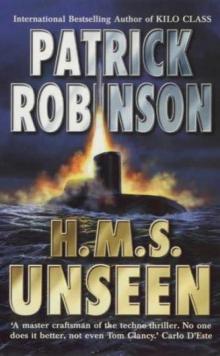 H.M.S. Unseen am-3
H.M.S. Unseen am-3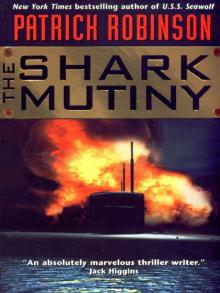 The Shark Mutiny (2001)
The Shark Mutiny (2001)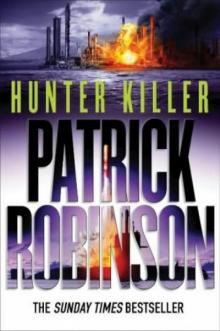 Hunter Killer am-8
Hunter Killer am-8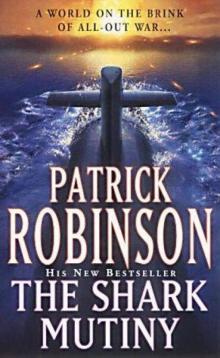 The Shark Mutiny am-5
The Shark Mutiny am-5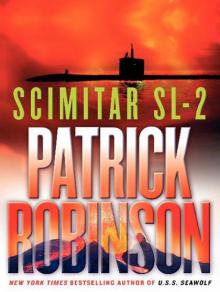 Scimitar SL-2
Scimitar SL-2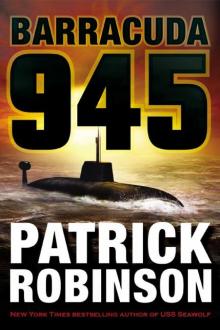 Barracuda 945 am-6
Barracuda 945 am-6 Hunter Killer
Hunter Killer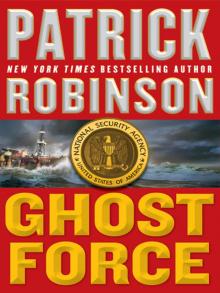 Ghost Force
Ghost Force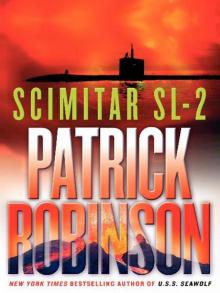 Scimitar SL-2 (2004)
Scimitar SL-2 (2004)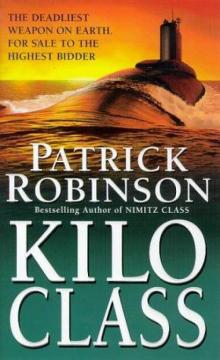 Kilo Class am-2
Kilo Class am-2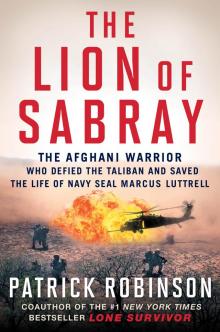 The Lion of Sabray
The Lion of Sabray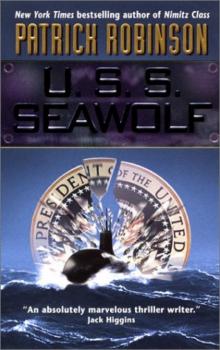 U.S.S. Seawolf am-4
U.S.S. Seawolf am-4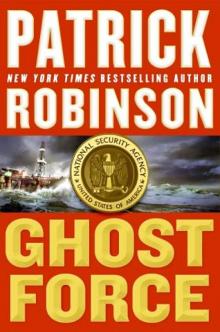 Ghost Force am-9
Ghost Force am-9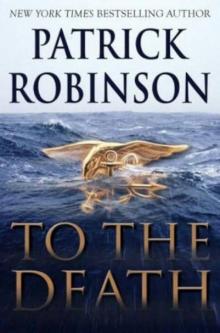 To the Death am-10
To the Death am-10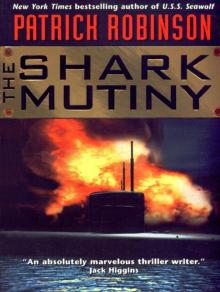 The Shark Mutiny
The Shark Mutiny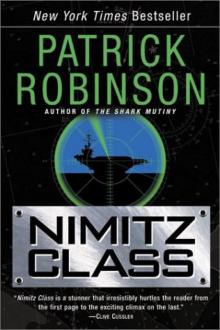 Nimitz Class am-1
Nimitz Class am-1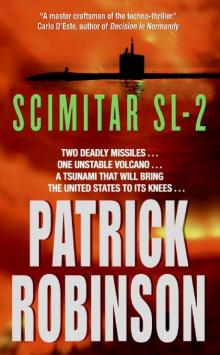 Scimitar SL-2 am-7
Scimitar SL-2 am-7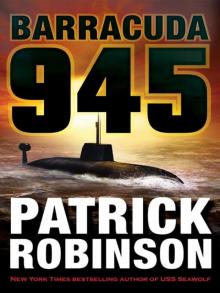 Barracuda 945
Barracuda 945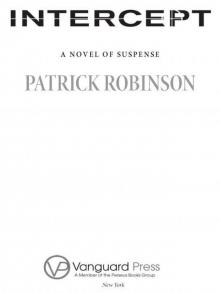 Intercept
Intercept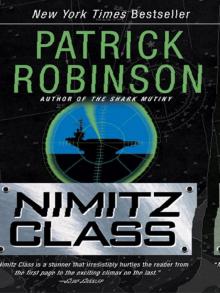 Nimitz Class (1997)
Nimitz Class (1997)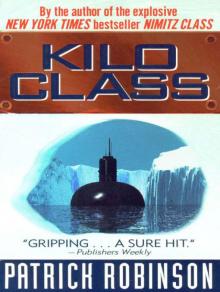 Kilo Class
Kilo Class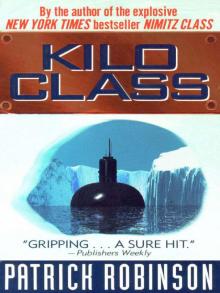 Kilo Class (1998)
Kilo Class (1998) Diamondhead
Diamondhead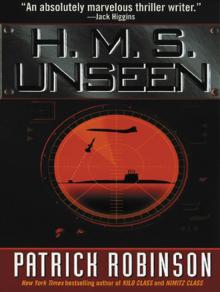 H.M.S. Unseen
H.M.S. Unseen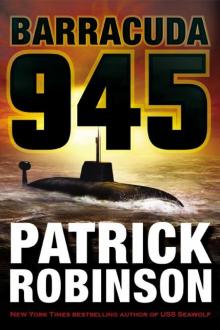 Barracuda 945 (2003)
Barracuda 945 (2003)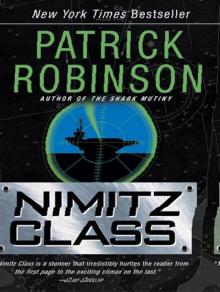 Nimitz Class
Nimitz Class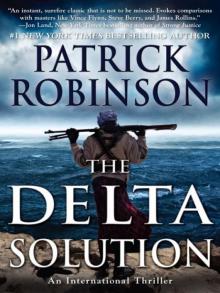 The Delta Solution
The Delta Solution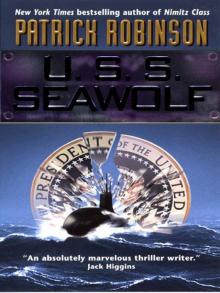 U.S.S. Seawolf
U.S.S. Seawolf